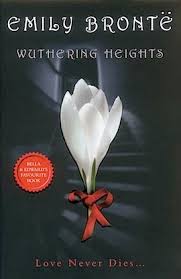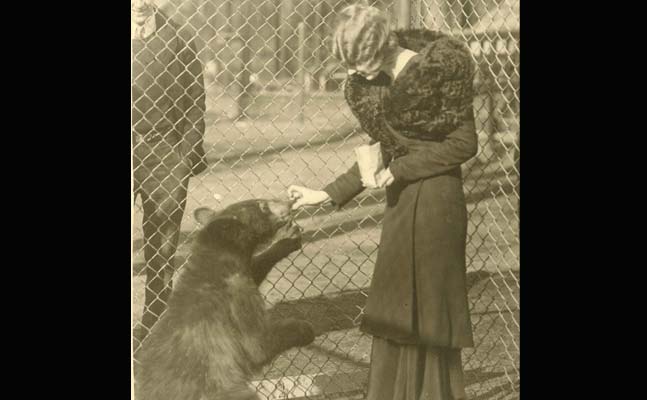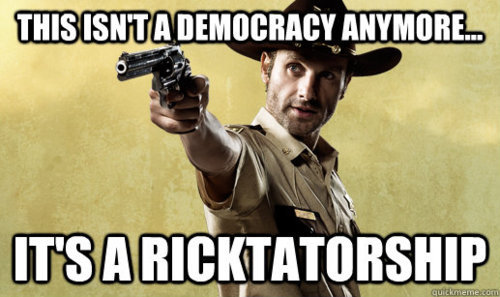A quick disclaimer: I betcha there are some spoilers in here, but it’s tough to properly mark spoilers on books this old. Fair warning.
——
My sister and I recently got into one of those stupid cage matches about which was better: Jane Eyre or Wuthering Heights
or Wuthering Heights . Before everyone starts popping their monocles and baying about how this is a stupid comparison & as meaningless as comparing chalk and cheese, I know. I totally know. But five hours in a car will send conversations to really weird places.
. Before everyone starts popping their monocles and baying about how this is a stupid comparison & as meaningless as comparing chalk and cheese, I know. I totally know. But five hours in a car will send conversations to really weird places.
Anyway, I spent some time defending Jane, because I’ve read it three times. I’ve only listened to a shitty books-on-tape version of Wuthering Heights when I was 19, which was *cough* a while ago. While I may read really hard, I listen badly, and even though I wasn’t that distracted – I was on another road trip – I spent a good deal of time spacing out during my listen. Add into this the fact that the guy doing the reading used Dog Voice on all of the women, I don’t remember boo about the book.
when I was 19, which was *cough* a while ago. While I may read really hard, I listen badly, and even though I wasn’t that distracted – I was on another road trip – I spent a good deal of time spacing out during my listen. Add into this the fact that the guy doing the reading used Dog Voice on all of the women, I don’t remember boo about the book.
A note on Dog Voice: my family may be cracked, but all of the dogs we had growing up had voices. Tessie, who was from Appalachia and was part-hound and part-werewolf, sounded like she had rocks in her mouth. She also sang opera. Kip has gravelly voice and a New York accent. For some weird reason, all of the border collie girl-dogs – I know the correct term is bitches, but I just can’t – have high-pitched girly voices. Nant, who has one blue-eye and one brown, and is crazy as a loon, is almost inaudible. So, Catherine sounded like a border collie dog, and then my brain kept trying to wake up from itself, and the spacing out turned into full on WHAT IS GOING ON HERE?
So now I’m 75 pages in. This is just the funniest thing I’ve ever read. All the growling and slap-fights! By the 50th page two people had been attacked by dogs! I’m assured it gets even better. I don’t even know how.
——–
Okay, so I was goofing off when I started this review talking about dogs, but dogs are all over this story. Bitches nurse their whelps in the kitchen; dogs are set on strangers in the yard; people enact the most vigorous cruelties on dogs as a manifestation of their black, black hearts. Mid-way through this novel, I had a conversation with one of my brilliant friends, and she said to watch how characters treat animals, which was smart advice. The scene where Heathcliff absconds/elopes with Isabella and hangs her dog from the neck to be rescued later by Nelly; the scene where Isabella escapes from Wuthering Heights, running past Hareton while he strangles a litter of unwanted pups: these cruelties bracket a larger brutality enacted between husbands and wives, lovers and friends, parents and children.
It’s not that animals get it worse than people. Whoo boy, not by a stretch. There’s violence everywhere: masters boxing servants, parents beating children, drunks threatening everyone with guns, wife-beating, dog-fights, fist-fights, death-threats, kidnapping, coyly hinted-at marital rape, book-burning – I could go on, but I’ll stop there. The violence also has the ring of real experience – what a mouth looks like filling with blood, how the bruises change over days, how a sucker punch robs you of breath and leaves you gasping like a fish. I wonder how quiet the Brontës home life was, really. The somewhat crappy introduction to my edition, written by Alice Hoffman, indicates that the Brontës’ brother was a gambler and an addict, and then rather sloppily connects the real brother with the character of Catherine’s older brother who gambles away Wuthering Heights. This is too literal a reading by half. This is the story of addicts and abusers all, a shockingly intimate and muscular portrait of vice and obsession, and it’s only because there aren’t needles cast about on the moors that we don’t quickly recognize it as early Romantic Trainspotting .
.
The heart is a muscle. It looks like a fist flayed of skin, stripped of all sensation but pain and bleeding and the need to clench and clench and clench. I don’t know what I expected, pretending as I had to have read this before, but I didn’t expect this series of reprisals and revenge and revenge. I’ve been thinking about Romeo and Juliet a bunch recently, because a whole bunch of excellent reviews have gone past on the feed, and I’m struck by all the violence and recriminations that characterize the great romances. (I’m working hard to come up with a witty Shakespearean “die for love” play on words equating sexual climax with death, but I’ve got nothing.) Anyway, as usual, I may be a total whack-job, but for me, the pivotal moment in R&J is when Mercutio gets killed. Up until that point, R&J is a wacky lark of meeting cute and stolen kisses and having the first words a pair of lovers speak to one another resolve into a sonnet. (Squee! So awesome!) But then, oh holy hell, sometimes a sword is just a sword, and then the only person who isn’t a self-involved child gets stabbed, and at this point, just for a flash, I want everyone dead: the lovers, their confidants, their parents, everyone. You wanna see die for love, kids? I’ve got your die for love right here.
a bunch recently, because a whole bunch of excellent reviews have gone past on the feed, and I’m struck by all the violence and recriminations that characterize the great romances. (I’m working hard to come up with a witty Shakespearean “die for love” play on words equating sexual climax with death, but I’ve got nothing.) Anyway, as usual, I may be a total whack-job, but for me, the pivotal moment in R&J is when Mercutio gets killed. Up until that point, R&J is a wacky lark of meeting cute and stolen kisses and having the first words a pair of lovers speak to one another resolve into a sonnet. (Squee! So awesome!) But then, oh holy hell, sometimes a sword is just a sword, and then the only person who isn’t a self-involved child gets stabbed, and at this point, just for a flash, I want everyone dead: the lovers, their confidants, their parents, everyone. You wanna see die for love, kids? I’ve got your die for love right here.
That flash is the plot of Wuthering Heights . Solder the principles of R&J into a lead ball comprised of two houses, some moors, and a visiting goofball and you’ve got it. Oh, our unreliable narrators! Let me freak about them for a moment. Walton from Frankenstein
. Solder the principles of R&J into a lead ball comprised of two houses, some moors, and a visiting goofball and you’ve got it. Oh, our unreliable narrators! Let me freak about them for a moment. Walton from Frankenstein and Lockwood from Wuthering Heights
and Lockwood from Wuthering Heights should have a battle to determine who is the most in love with the stories unfolding under their noses. I’m going to give Lockwood extra points for being a more comedic fellow; all of his sighing and bitching about being such a misanthrope rings hilariously hollow when he’s confronted by
should have a battle to determine who is the most in love with the stories unfolding under their noses. I’m going to give Lockwood extra points for being a more comedic fellow; all of his sighing and bitching about being such a misanthrope rings hilariously hollow when he’s confronted by The Prince of Darkness Heathcliff and his sick side-show. He stumbles back to the grange after the first meetings with Heathcliff and begs Nelly to give him the goods, which she does in just the most beatific of self-serving forms.
 |
New Twilight-esque covers:
You totally wish, Smeyer. |
And Nelly. Ah, Nelly. Walton, in Frankenstein writes to his sister who sits dumb and mum throughout the whole tale. Here there’s no epistolary nightmare, but the outflowing of kitchen gossip: domestic, unlettered, invested, damaged as all get out. Narrators like Nelly make me freak out, because I spend waaaay too much time thinking about what really happened, and then I remember that it’s all fiction, and then I freak out some more. Then there’s the tantalizing parts that Lockwood reads in Catherine’s own words – he spends a night spooking at his shadow at Wuthering Heights, and finds a collection of Catherine’s books, where she has used every unprinted space as a diary. This makes me hyperventilate. I have a whole thing about gothic novels – hell, just novels in general – and the way they reference the form, mostly negatively, a hall of mirrors reflecting influence and anxiety. The governess in The Turn Of The Screw
writes to his sister who sits dumb and mum throughout the whole tale. Here there’s no epistolary nightmare, but the outflowing of kitchen gossip: domestic, unlettered, invested, damaged as all get out. Narrators like Nelly make me freak out, because I spend waaaay too much time thinking about what really happened, and then I remember that it’s all fiction, and then I freak out some more. Then there’s the tantalizing parts that Lockwood reads in Catherine’s own words – he spends a night spooking at his shadow at Wuthering Heights, and finds a collection of Catherine’s books, where she has used every unprinted space as a diary. This makes me hyperventilate. I have a whole thing about gothic novels – hell, just novels in general – and the way they reference the form, mostly negatively, a hall of mirrors reflecting influence and anxiety. The governess in The Turn Of The Screw , Catherine Morland in Northanger Abbey
, Catherine Morland in Northanger Abbey (Catherine’s literary ancestor?) both of these ladies read too much and it made them mad, I tell you, mad. (Well, okay, not exactly mad in Northanger, but v. v. silly.) I love that Catherine writes herself into a novel, limning her words over other stories. I think in some ways the whole latter plot, once Catherine decides to marry the noodle Linton and play at the domestic, could be seen as a revenge fantasy imagined by Catherine herself, written over the more likely scenario of her having her youthful identity ground out of her by a succession of children, drudging women’s work, and the inevitable betrayal of age.
(Catherine’s literary ancestor?) both of these ladies read too much and it made them mad, I tell you, mad. (Well, okay, not exactly mad in Northanger, but v. v. silly.) I love that Catherine writes herself into a novel, limning her words over other stories. I think in some ways the whole latter plot, once Catherine decides to marry the noodle Linton and play at the domestic, could be seen as a revenge fantasy imagined by Catherine herself, written over the more likely scenario of her having her youthful identity ground out of her by a succession of children, drudging women’s work, and the inevitable betrayal of age.
Let’s just take a moment and think about Heathcliff and Catherine. Let’s just take it on faith that they are the same person, as Catherine most swooningly declares while she dithers about whether to marry someone else, sitcom-like, while Heathcliff feigns sleep in the next room and Nelly prods her on. Heathcliff is Catherine; he’s her wildness and anger and passion. This isn’t some Jekyll/Hyde deal because Catherine, at the start, is as wild as they come, feral, naughty & only partially housebroken. I think it’s important that Heathcliff is a foundling, born out of no one and nothing, his name the compound of two natural places, the heath and the cliff. When Catherine meets the Lintons, she’s attacked by their dog, and spends several weeks convalescing and domesticating. This troubles her relationship with Heathcliff, finally coming to a crisis when she decides to marry Linton.
Heathcliff storms off – literally! har har – as she forsakes wildness for a certain kind of comfort, choosing the way women had to between love and money. (Of course there’s always secret options b, c, & d: impoverished marriage, servitude or death in childbirth. You can probably come up with an equally unpleasant but likely e, f & g without much trouble too.) But still these are the options more often laid before women in novels: marry for love, marry for money, or not at all. This dramatized simplicity is why I think Pride and Prejudice gets mistaken for a romance novel: finding a rich husband that Lizzie (and Jane too!) also loves smacks of wish-fulfillment. How many times has that actually happened in the history of the world? Like, twice?
gets mistaken for a romance novel: finding a rich husband that Lizzie (and Jane too!) also loves smacks of wish-fulfillment. How many times has that actually happened in the history of the world? Like, twice?
So maybe I’ve been watching too much Star Trek with its transporter accidents and multiverse theory, but this is where the plot spins off on Track B for me. In some more prosaic world, Cathy marries, gets pregnant, has a baby, and in some real way this kills her younger self. Heathcliff, her rage and freedom, transports into an emotional reality and exacts vengeance for his loss, for her loss, sucking up inheritances, property, lives, decorum, and anything else he can get his mitts on. As each person dies, he swells with life, living by punishment and annihilation. There aren’t many people in this world, and as the plot unfolds, they become fewer and more inbred, with an almost confusing doubling and trebling of names, children, marriages and blood and blood and blood. Lockwood, in the very beginning, notes a series of names carved in the window sill: Catherine Earnshaw, Catherine Heathcliff and Catherine Linton. Read forwards, these names are the trajectory of Catherine’s life; read backwards, they are her daughter’s. After all the death and wreckage, the story comes to a kind of peace, the younger Cathy giggling in a window as she plays slap-and-tickle with her husband. (And those of you who’ve read this: I know they keep referring to Hareton as her cousin, which is gross enough, but isn’t he her uncle? Eww.)
I have this bad feeling I’ve made this sound like a total drag, and like I didn’t like it at all. No! I’m all for this, and this is funny as hell – literally! har har – I have simply got to stop making that joke. Again, I don’t know what I thought, but I didn’t expect how robust and lusty this book was, how muscled the prose, how unflinching and violent. I don’t often go in for romantic – degraded as that term has become – because so often it’s all soft-focus douche-ad that relies on euphemism over viscera. I don’t know what to say about the Jane v. Catherine thunderdome battle, other than this: I want some academic to write a paper about phrenology and the Brontës. Okay, maybe that’s a weird thing to think, but all the descriptions of foreheads and bumps on the skull – did they have some phrenological text in the house or something? Several brilliant friends have recommended I read the third Brontë to throw a folding chair into the ring. I think I will, after I read a bunch of trash, of course.


by Mark Siegel takes place slightly earlier than the founding of this zoo, 1887, on the Hudson river. Sailor Twain (“Don’t call me captain”) plies the river in his steamer in the employ of a drunken Frenchman named Lafayette. The story starts with layers though – a broken Twain sought out for his story by an enigmatic woman, all shadows and cloaks, and then tells the tale lappingly, incidents building, reversing so that you apply new information to old assumptions, reimagine as you imagine. The Hudson, like the Thames, is a tidal river, and it flows both ways depending on the moods of the tides. Twain’s recountings start with his offhand observation of a stag in the river, and then the discovery of mermaid on his boat.
is bare-breasted in most of the panels she occurs, and it is frustrating me no end that I can’t replicate them here. I went and dug around the history of the Starbucks mermaid for a while this morning – I knew she had run into trouble in places like Saudi Arabia and with Christian groups for doing things like having breasts and being a woman-ish creature.



